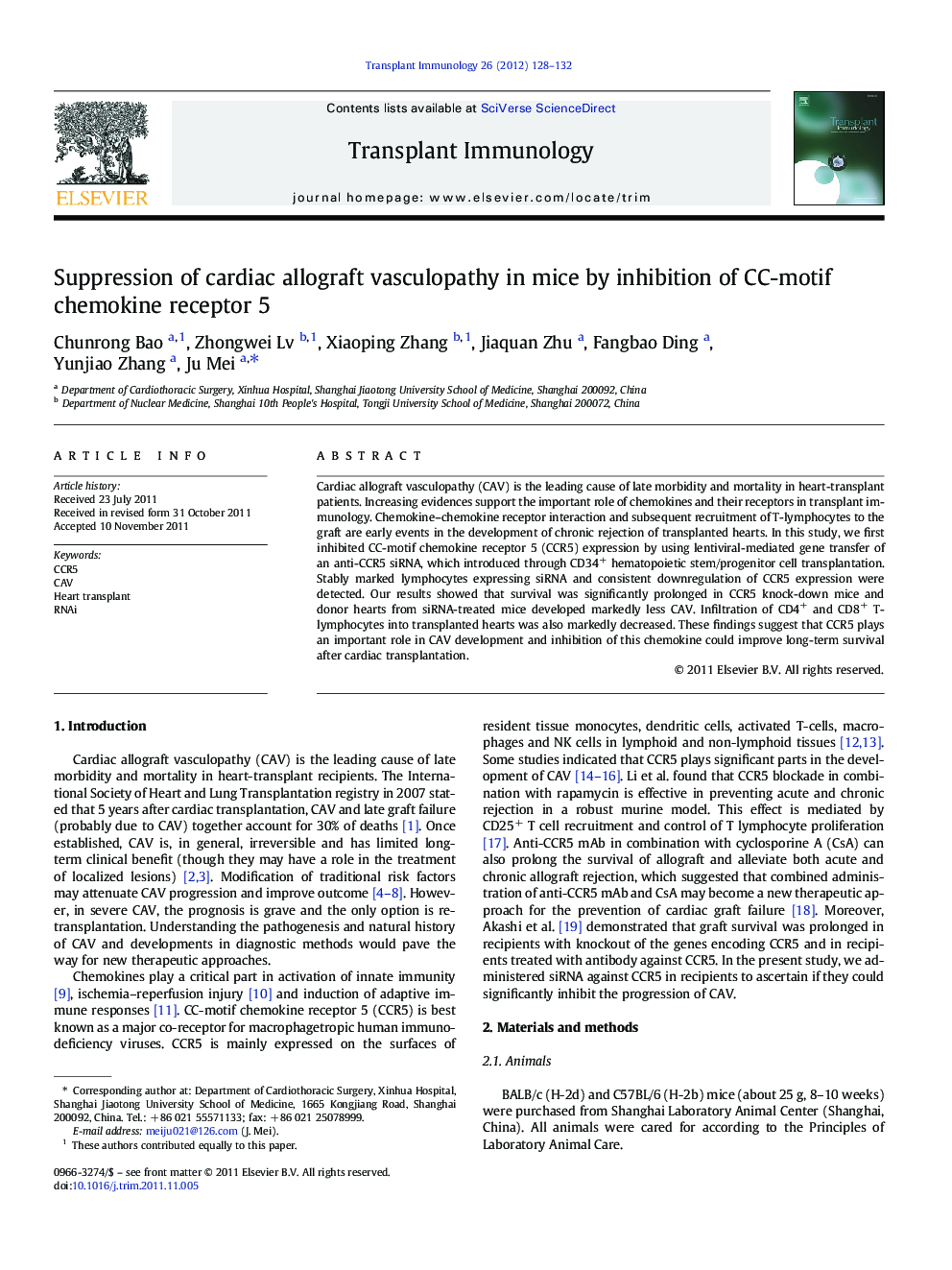| Article ID | Journal | Published Year | Pages | File Type |
|---|---|---|---|---|
| 3392175 | Transplant Immunology | 2012 | 5 Pages |
Cardiac allograft vasculopathy (CAV) is the leading cause of late morbidity and mortality in heart-transplant patients. Increasing evidences support the important role of chemokines and their receptors in transplant immunology. Chemokine–chemokine receptor interaction and subsequent recruitment of T-lymphocytes to the graft are early events in the development of chronic rejection of transplanted hearts. In this study, we first inhibited CC-motif chemokine receptor 5 (CCR5) expression by using lentiviral-mediated gene transfer of an anti-CCR5 siRNA, which introduced through CD34+ hematopoietic stem/progenitor cell transplantation. Stably marked lymphocytes expressing siRNA and consistent downregulation of CCR5 expression were detected. Our results showed that survival was significantly prolonged in CCR5 knock-down mice and donor hearts from siRNA-treated mice developed markedly less CAV. Infiltration of CD4+ and CD8+ T-lymphocytes into transplanted hearts was also markedly decreased. These findings suggest that CCR5 plays an important role in CAV development and inhibition of this chemokine could improve long-term survival after cardiac transplantation.
► Inhibition of CCR5 could improve long-term survival after cardiac transplantation. ► CTL activity of CD8+ T-cells was attenuated in CCR5−/− recipients. ► CCR5 plays a significant role in CAV development.
